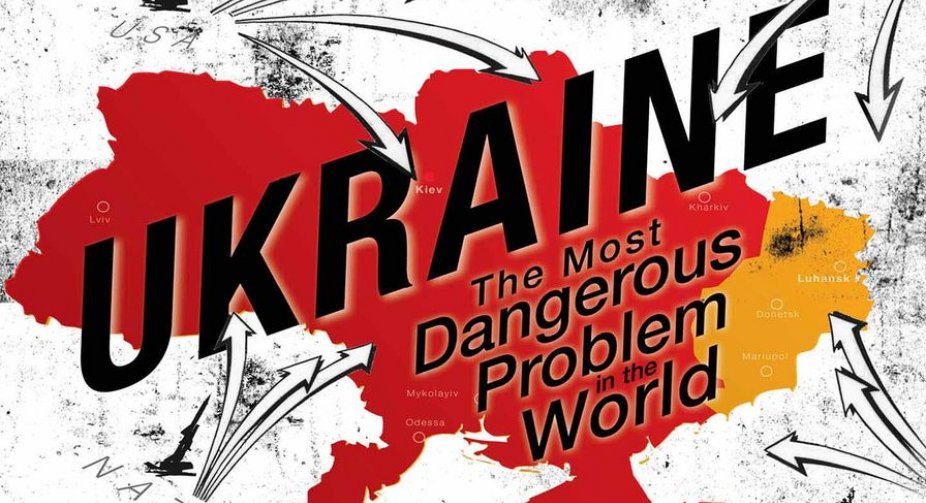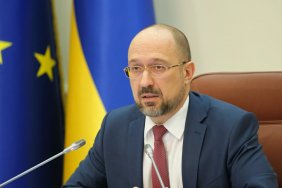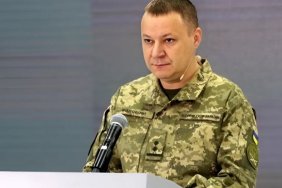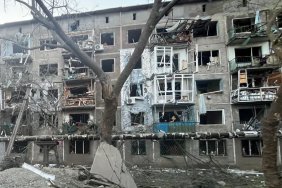U.S. political elites have been surprised by the speed of the disintegration of the Afghan state, since the U.S. media stopped paying attention to events in Afghanistan after most of the U.S. troops were withdrawn.
One of the most threatening crises is the armed confrontation between the Ukrainian military and Russian-backed separatist forces in eastern Ukraine. Russia has stationed its troops in southern Russia to protect the area from any new Ukrainian offensive.
After the events of 2014, Ukrainian governments promised to retake the Donbas. U.S. administrations have expressed strong support for Ukraine and future NATO membership (so far blocked by Germany and France), but have made no promises to defend Ukraine. America's defeat in Afghanistan may force Russia (and China) to be more active.
Only the craziest of American politicians and commentators want war with Russia in Ukraine. But as the outbreak of World War I showed, leaders who do not intend to go to war may find themselves in a situation where they cannot stop or turn back. The consequences of a direct confrontation between the United States and Russia in Ukraine are disastrous. Given Russia's vast superiority over Ukraine's armed forces and the limited number of U.S. troops in Europe, there is a good chance that Russia will win the war in Ukraine by capturing much more Ukrainian territory. Moreover, it does not need any concessions from either Ukraine or the United States.
The depth of Russia's commitment to this solution must of course be tested in practice; but if the American administrations, the political establishment, and the mainstream media have buried it, it is because of the Ukrainian governments' refusal to install it and the United States' refusal to pressure them.
This solution to the dispute in the Donbass lies in the Minsk II agreement. The key military element of "Minsk II" is the disarmament of the separatists and the withdrawal of Russian "volunteer" forces. and full autonomy for the Donbas. The Minsk II Protocol was approved by the UN Security Council. Both U.S. administrations have consistently supported the Minsk II Protocol.
Three interrelated problems have so far blocked the implementation of the agreement: the inability to reach agreement between Kiev and Moscow on the terms of permanent autonomy for the Donbas; the Russian government and separatist leadership claim that if allowed to take full control before local elections and constitutional changes, Kiev itself would rig or cancel the elections and forget about autonomy.
Ukraine's parliament passed a law on the special status of Donbas on March 17, 2015, but it was temporary. The Ukrainian parliament gave the region more limited powers than those provided by the Minsk parliament.
Moscow does not plan a quick annexation; only on this basis can Ukraine be reunified and Ukraine's long-term stability, security, and unity guaranteed. Repeated public opinion polls in Donbas and free elections have shown that many of its residents are in favor of the region's autonomy within Ukraine.
Between 1991 and 2014, Ukraine balanced between supporters of an ethnic version of Ukrainian identity in the western and central regions of the country and supporters of a civilian version in the east and south.
In order to achieve a peaceful settlement, the factors that led to the failure of the Minsk II agreement must be dealt with. As long as Ukraine is involved in a territorial conflict, it will never be invited to join NATO and the EU.
If the United States were to abandon the goal of Ukraine joining NATO, it could pressure the Ukrainian government and parliament to agree to Minsk-3 under the real threat of withdrawing U.S. aid and political support.
The United States should facilitate the following basic settlement conditions:
- An amendment to Ukraine's constitution establishing Donbass as an autonomous republic within Ukraine (including those parts of the Donetsk and Lugansk regions currently controlled by Ukraine);
- the constitution of the autonomous republic of Donbas (including its constitutional relations with Ukrainian national institutions in Kyiv) should be submitted to the population of Donetsk and Luhansk in a referendum under the supervision and control of the UN and the Organization for Security and Cooperation in Europe.
If a majority of Donbass voters oppose the constitutional amendment, they will decide to remain part of Ukraine under the current unitary constitution, but if Ukraine starts a new war, annexation is sure to follow, leading to a new crisis in Russian relations with the West.
To guarantee the creation and preservation of autonomy, a referendum on autonomy and the establishment of a regional government under the Ukrainian constitution must take place before Ukraine takes control of the border with Russia. These peacekeeping forces would also oversee and certify the disarmament of existing separatist armed forces, the withdrawal of all Russian troops, and the withdrawal of Ukrainian armed forces from their current positions in Donetsk and Luhansk.
Ideally, the peace settlement should also include a treaty establishing Ukrainian neutrality for the next generation, modeled on the Austrian State Treaty and related Austrian neutrality law of 1955, but with termination or renewal after 30 years.
Ukraine and the U.S. would lose nothing from such a treaty, since Ukraine's accession to NATO is impossible as long as the conflict in Donbas and the Crimean dispute remain open.
These problems include the enormous cost of rebuilding the economy after the Covid crisis and EU promises to reduce carbon dioxide emissions to zero by 2055, which would leave little money for the enormous task of subsidizing Ukraine's economy to a level that would allow it to join the EU.
U.S. economic development aid to Ukraine of $285 million a year (in 2020) is not enough to meet Ukraine's needs, let alone help prepare the country for EU membership.
Currently, the U.S. approach to Ukraine is zombie politics - a dead strategy that wanders around pretending to be alive and hindering everyone because American politicians can't bring themselves to bury it.
Opposition to reasonable compromise on Ukraine also stems in part from fears that Russia's strategy in Ukraine is a key component of Russia's much broader ambitions, and that compromise would lead to Russian aggression elsewhere that would "challenge the entire architecture of the post-Cold War order," as former U.S. ambassador to NATO Nicholas Burns put it in 2014.
The West's current hostility toward Russia stems primarily from the crisis in Ukraine and Russia's actions there, and this hostility will diminish once the Ukrainian crisis is over.
The U.S. administration has never seriously explained to the American public why eastern Ukraine, a region that has been of minimal concern to the United States, has become so important in recent years. In the case of the Donbass, while U.S. attention to the region began about 30 years ago, the interest of the Moscow Russian state (later the Russian Empire) began about 600 years ago, and the interest of the previous state of Kievan Rus (whose legacy is disputed between Russia and Ukraine) about 600 years before that.
However, the great powers have a great interest in the regions on their borders and react with suspicion and hostility to the emergence of rival great powers there.
The argument that Ukraine forms an asset for the United States in the event of Russian aggression against the West is illogical and dangerous. Second, it is NATO, of which Ukraine is not a member, that exists to deter and repel any Russian attempts to dominate Europe - which in any case is unlikely, given both the comparative size of the Russian and EU economies and the lack of any evidence of such Russian ambitions.
America's greatest interest in Ukraine is to prevent conflict in that country.






